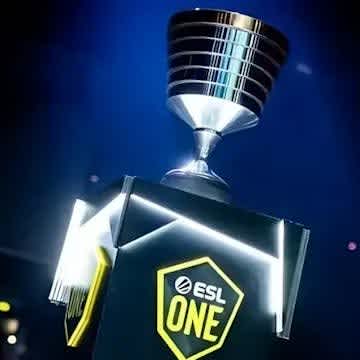ESL Pro League Changes - CS:GO’s Champions League
It seems like one of the two premiere online leagues for CS:GO is on the verge of a massive change with the announced ESL Pro League Changes – mainly be upgrading to an offline environment. The prestige of LAN events were always higher than the usual fare where ping doesn’t play a factor and a spaghetti of a scheduling nightmare is also reduced to a fairly well-organized set of games at a standardized location. It’s a pretty bold and ambitious move by ESL, hot on the heels of their very own Intel Grand Slam promotion: while it seems like an impressive attempt in terms of muscling out some of the competing tournament organizers, it remains to be seen whether this endeavor is going to be sustainable in the long run.

Until now, perhaps the one constant of the CS:GO calendar was the two big online leagues underpinning the fervor and craze of the LAN circuit: FACEIT’s ECS and ESL’s Pro League managed to work with what is much akin to the uneasy room-sharing deal of The Odd Couple series. While Counter-Strike is no bachelor apartment, the two offerings were pretty much running side-by-side with a similar structure, both of them culminating in a LAN final. Online events are cheap to maintain and run, their broadcast is infinitely simpler than organizing an offline alternative, though the long qualification process and the comparatively lower stakes still meant that we’ve got a long-running steady stream of CS:GO content, even if the quality was a fair bit lower than what we’re used to at LANs.

Well, that seems to be changing now as ESL’s monumental shift in Season 9 will bring along a completely revamped format, changing the event into an entirely offline endeavor. In terms of prestige and gameplay quality, it’s undeniable a great move and it definitely offers something tangible that separates the competition from ECS. Moreover, the fact that regular LAN appearances are expected from the teams means that they are likely incentivized to participate in the league instead of going to other offline tournaments – a ballsy move and one that likely didn’t come cheap. With the greatly increased broadcasting costs and the aforementioned incentives in play, this could be a fairly risky endeavor for a company that is essentially bleeding money – especially once the much-maligned Facebook deal reaches its end.
However, it is undeniable that this revamped format is guaranteed to shake up the tournament landscape for 2019, and that ESL’s got some damn impressive offerings with the Intel Grand Slam circuit running side-by-side with this spectacle. It’s clearly going to make a major impact on the LAN scene in general as well due to the required offline commitments – it will be really exciting to see how the other organizers respond.

Spare a thought for the majors as well: as the arms race between TOs continue to shape up, increasing prize pools and improving formats seemingly round-the-clock, the Valve-sponsored flagship events are clearly lagging behind. A high-variance format somehow coupled with a glacially slow elimination process, forced parity between the different regions and a prize pool that is no longer above and beyond the alternatives: there’s a pretty good argument to be made that they are no longer the most prestigious titles on the calendar, and that a serious revamp is in order seeing the lay of the land in CS:GO.





